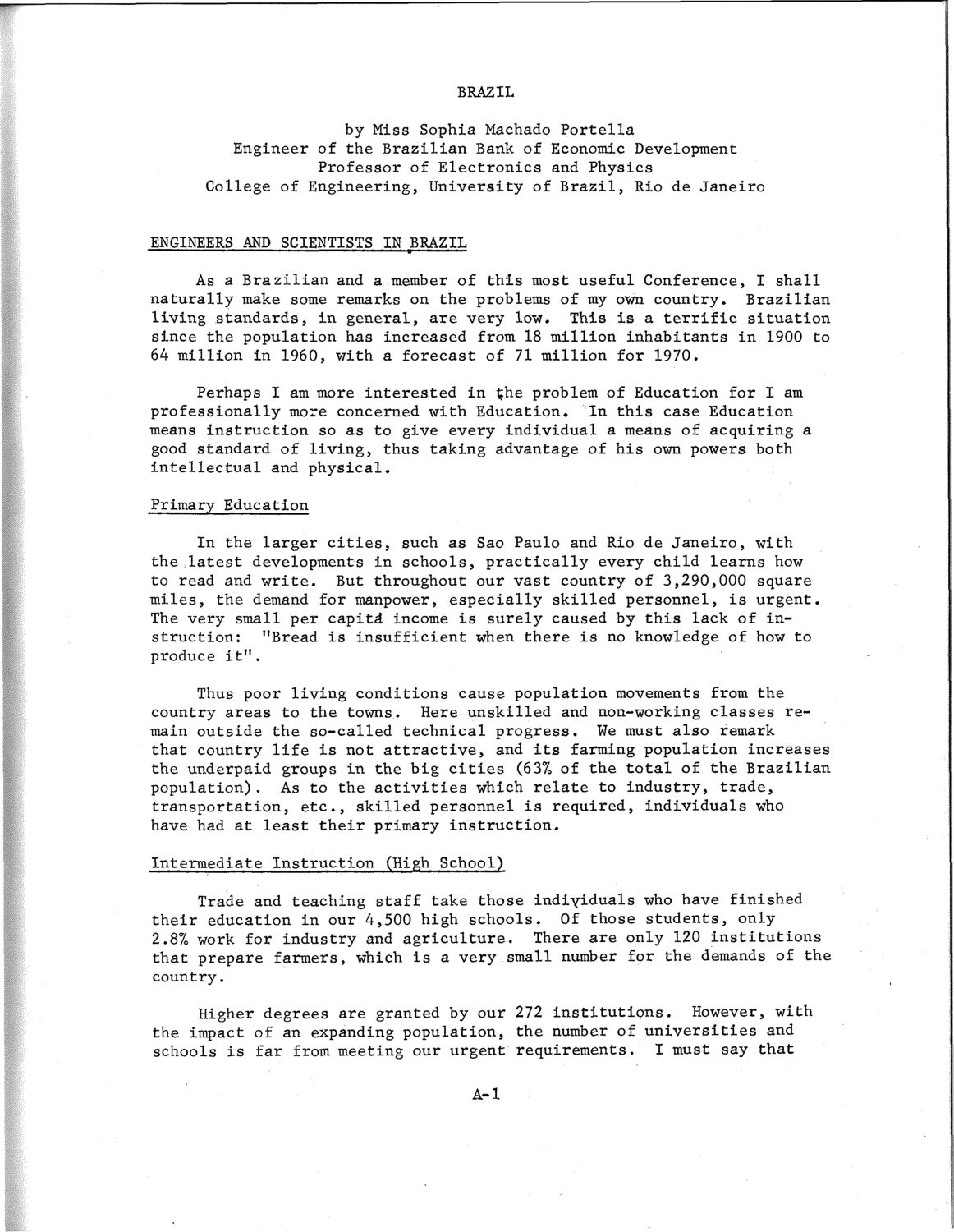| |
| |
Caption: SWE - Proceedings of the First International Conference of Women Engineers and Scientists
This is a reduced-resolution page image for fast online browsing.

EXTRACTED TEXT FROM PAGE:
BRAZIL by Miss Sophia Machado Portella Engineer of the Brazilian Bank of Economic Development Professor of Electronics and Physics College of Engineering, University of Brazil, Rio de Janeiro ENGINEERS AND SCIENTISTS IN BRAZIL *— B As a Brazilian and a member of this most useful Conference, I shall naturally make some remarks on the problems of my own country. Brazilian living standards, in general, are very low. This is a terrific situation since the population has increased from 18 million inhabitants in 1900 to 64 million in 1960, with a forecast of 71 million for 1970. Perhaps I am more interested in %he problem of Education for I am professionally more concerned with Education. In this case Education means instruction so as to give every individual a means of acquiring a good standard of living, thus taking advantage of his own powers both intellectual and physical. Primary Education In the larger cities, such as Sao Paulo and Rio de Janeiro, with the latest developments in schools, practically every child learns how to read and write. But throughout our vast country of 3,290,000 square miles, the demand for manpower, especially skilled personnel, is urgent. The very small per capita1 income is surely caused by this lack of instruction: "Bread is insufficient when there is no knowledge of how to produce it". Thus poor living conditions cause population movements from the country areas to the towns. Here unskilled and non-working classes remain outside the so-called technical progress. We must also remark that country life is not attractive, and its farming population increases the underpaid groups in the big cities (63% of the total of the Brazilian population). As to the activities which relate to industry, trade, transportation, etc., skilled personnel is required, individuals who have had at least their primary instruction. Intermediate Instruction (High School) Trade and teaching staff take those individuals who have finished their education in our 4,500 high schools. Of those students, only 2.87o work for industry and agriculture. There are only 120 institutions that prepare farmers, which is a very small number for the demands of the country. Higher degrees are granted by our 272 institutions. However, with the impact of an expanding population, the number of universities and schools is far from meeting our urgent requirements. I must say that A-l
| |